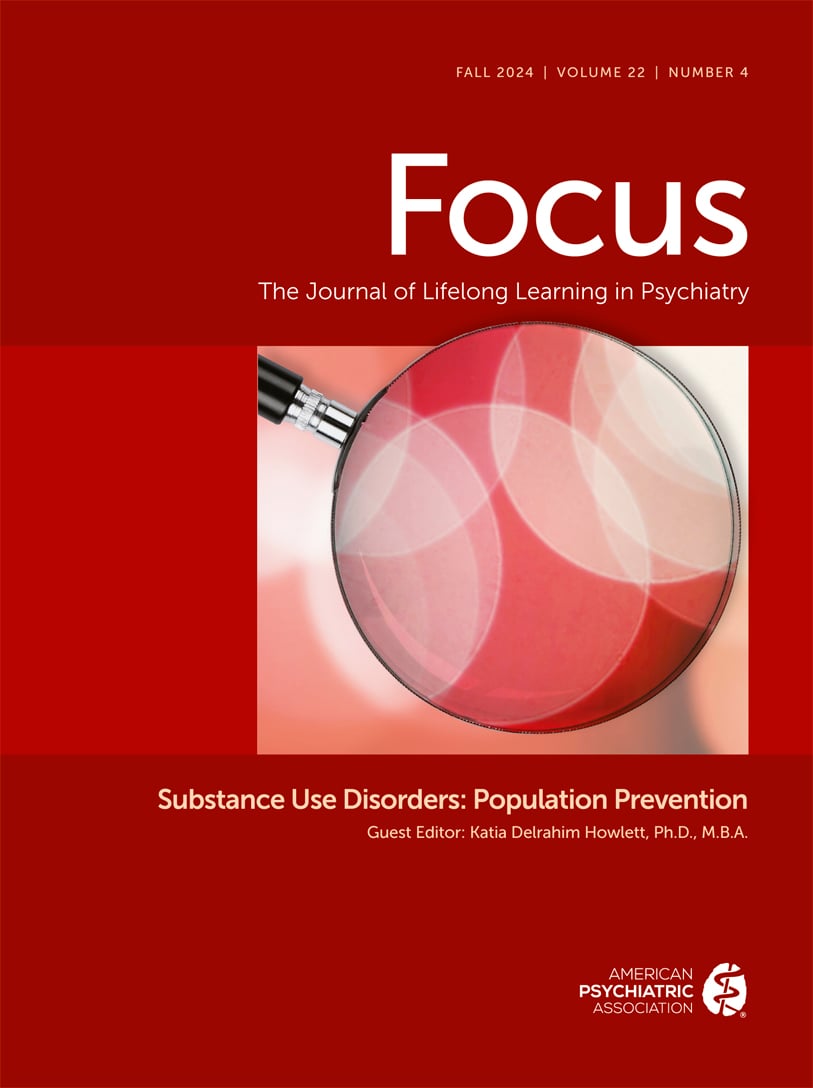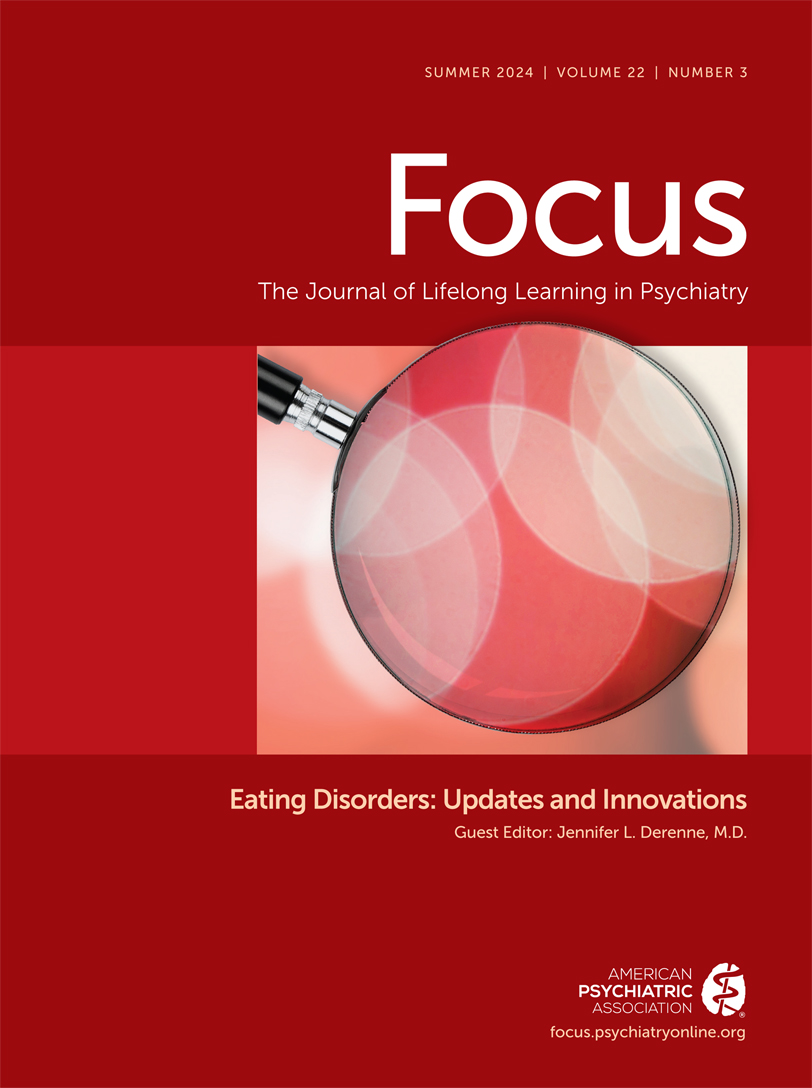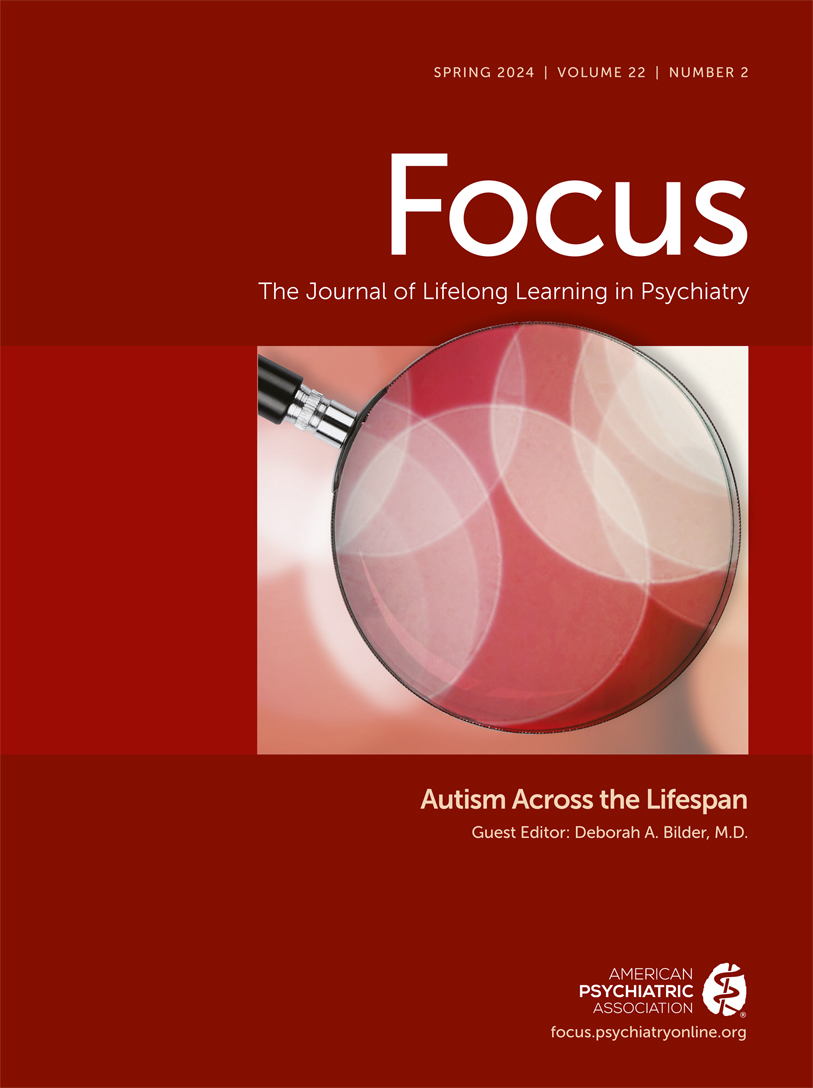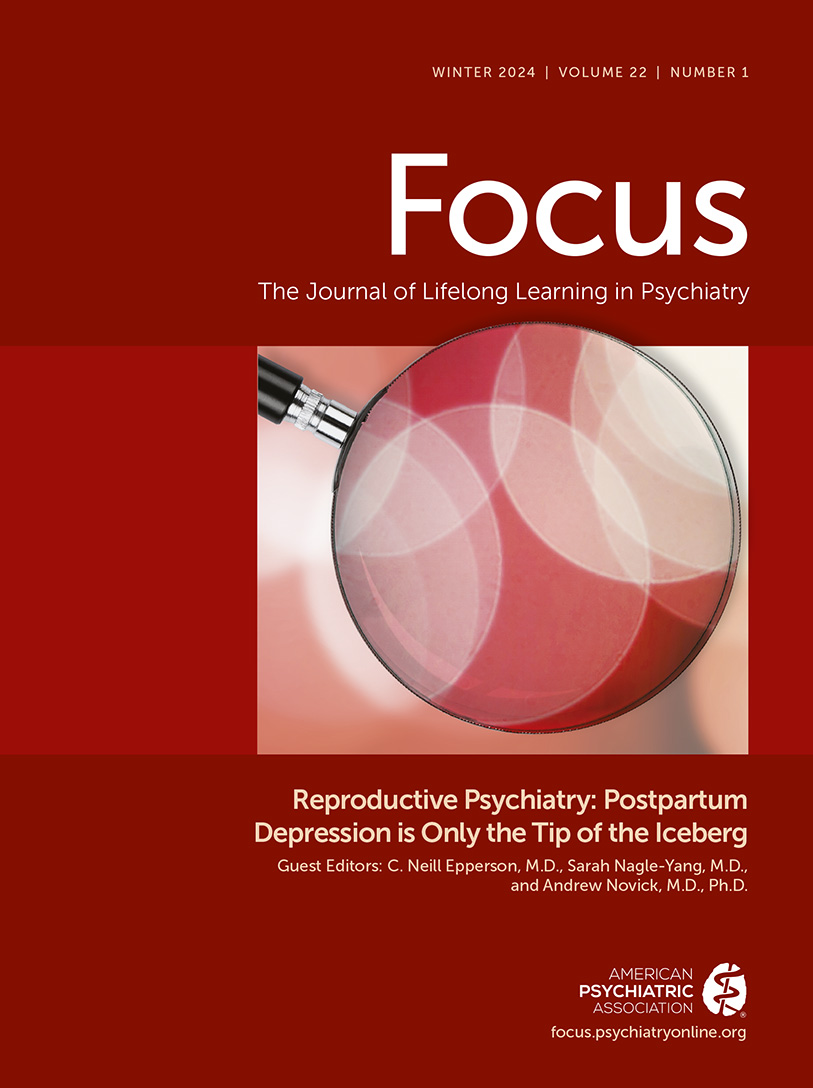Focus
- Volume 9
- Number 1
- January 2011
FROM THE GUEST EDITOR
CLINICAL SYNTHESIS
Publication date: 01 January 2011
Pages3–14This is an overview of practices in addiction psychiatry. In particular, it refers to problems inherent in diagnosing and treating patients with alcohol and other substance use disorders. A proper assessment of substance use has the potential to decrease ...
https://doi.org/10.1176/foc.9.1.foc3Publication date: 01 January 2011
Pages15–24In the United States and around the world, nicotine dependence is a leading cause of preventable death. Smoking cessation results in immediate and enduring health benefits. A wide range of clinical interventions have been shown to facilitate smoking ...
https://doi.org/10.1176/foc.9.1.foc15Publication date: 01 January 2011
Pages31–41The American Board of Medical Specialties (ABMS) and the American Board of Psychiatry and Neurology (ABPN) are implementing multifaceted Maintenance of Certification (MOC) requirements to enhance quality of patient care and assess and verify the ...
https://doi.org/10.1176/foc.9.1.foc31Publication date: 01 January 2011
Pages42–54This clinical synthesis focuses on the evidence-based practice of motivational interviewing (MI) and its use in the treatment of addictions, risky drinking, and general psychiatric practice. The authors review the definition and basic concepts of MI, ...
https://doi.org/10.1176/foc.9.1.foc42INFLUENTIAL PUBLICATIONS
Publication date: 01 January 2011
Pages72–74This section contains a compilation of recent publications that have shaped the thinking in the field as well as classic works that remain important to the subject reviewed in this issue. This bibliography has been compiled by experts in the field and ...
https://doi.org/10.1176/foc.9.1.foc72Publication date: 01 January 2011
Pages79–89Alcoholism remains a serious cause of morbidity and mortality despite progress through neurobiological research in identifying new pharmacological strategies for its treatment. Drugs that affect neural pathways that modulate the activity of the cortico-...
https://doi.org/10.1176/foc.9.1.foc79Publication date: 01 January 2011
Page90Substance use was considered to be primarily a male problem, and many substance abuse studies are conducted with a predominance of male participants. However, recent substance abuse research indicates significant gender differences in the substance-...
https://doi.org/10.1176/foc.9.1.foce90Publication date: 01 January 2011
Pages99–106If you were asked: ‘What are the most important things we know about addiction?' what would you say? This paper brings together a body of knowledge across multiple domains and arranged as a list of 10 things known about addiction, as a response to such a ...
https://doi.org/10.1176/foc.9.1.foc99Publication date: 01 January 2011
Pages107–117Both pharmacotherapy and behavioural treatment are required to relieve the symptoms of addictive disorders. This paper reviews the evidence for the benefits of pharmacotherapy and discusses mechanisms where possible. Animal models of addiction have led to ...
https://doi.org/10.1176/foc.9.1.foc107Publication date: 01 January 2011
Pages118–129Whither, or wither, empirically supported therapies? Increasingly rigorous research in behavioral therapies has yielded a large number of effective therapies, but comparatively little work, demonstrating that integrating empirically supported therapies (...
https://doi.org/10.1176/foc.9.1.foc118Publication date: 01 January 2011
Pages130–148Summary. Screening, Brief Intervention, and Referral to Treatment (SBIRT) is a comprehensive and integrated approach to the delivery of early intervention and treatment services through universal screening for persons with substance use disorders and those ...
https://doi.org/10.1176/foc.9.1.foc130Past Issues
View Issues Archive
Vol. 22 | No. 4

Vol. 22 | No. 3

Vol. 22 | No. 2
